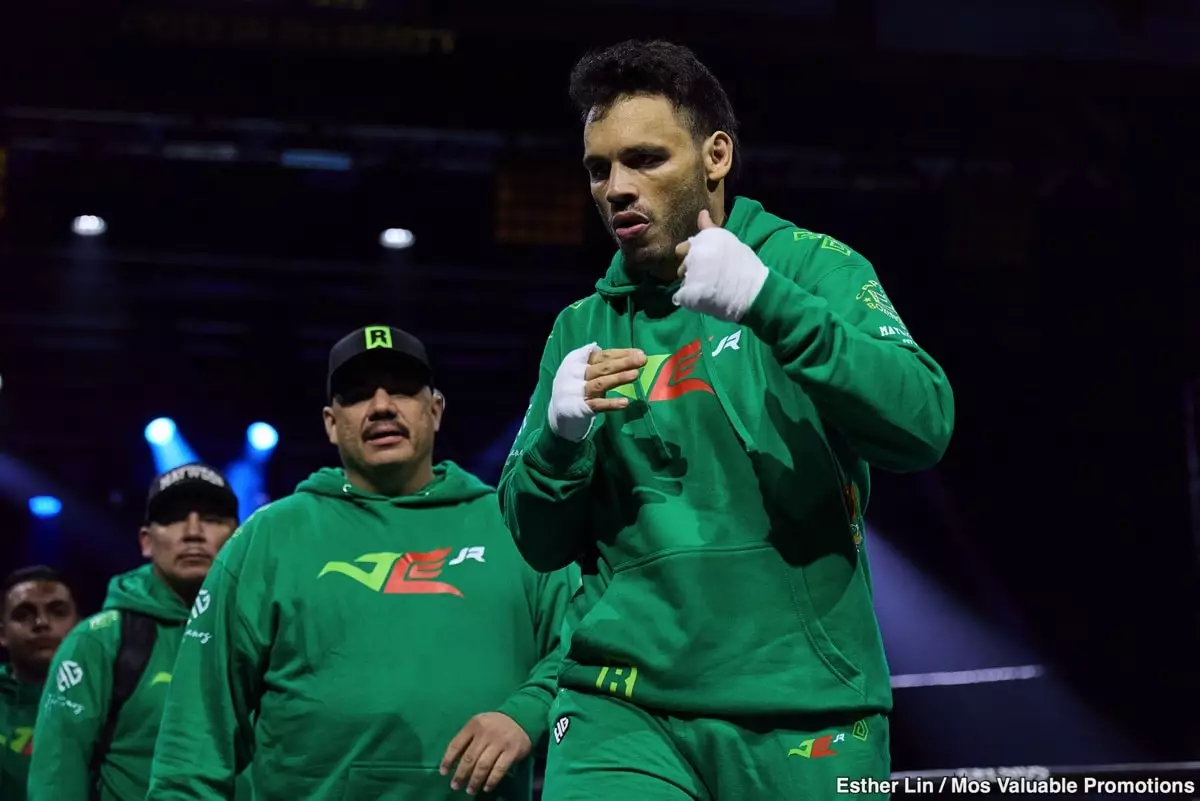Julio Cesar Chavez Jr., once celebrated as a boxing icon and the son of a legendary boxer, now finds himself embroiled in a scandal that threatens to eclipse his athletic achievements. For years, fans admired his prowess in the ring, his resilience, and his lineage—yet beneath the surface, darker currents have pulled him into a tumultuous whirlpool of legal trouble and alleged associations with organized crime. His recent arrest reveals that success in the ring does not guarantee immunity from life’s more sinister challenges. His story serves as a sobering reminder that fame often conceals complex and troubling personal circumstances, which, if unchecked, can lead to devastating consequences.
Legal Fallout and Allegations of Serious Crime
Chavez Jr’s arrest in Studio City signals a dramatic escalation in his legal woes. Federal authorities charge him with involvement in criminal enterprises linked to trafficked firearms, ammunition, and explosives—charges that carry severe penalties and tarnish his reputation irreparably. The fact that such allegations are linked to organized crime dynasties, particularly the notorious Sinaloa Cartel, raises questions about how deeply Chavez Jr may have intertwined his personal life with criminal networks. His prior lawful residence application, based on marriage to a US citizen, appears now to be overshadowed by accusations that he may be more aligned with illicit activities than anyone realized. This situation underscores the perilous path some individuals tread when they become entangled with dangerous elements, despite their public personas.
The Fragile Line Between Privilege and Danger
Importantly, Chavez Jr’s entry and stay in the United States bear scrutiny. Despite holding a tourist visa valid until 2024, his subsequent application for permanent residency was reportedly based on his marriage—a seemingly positive step toward stability. However, recent revelations about his wife’s alleged connections to a major crime syndicate cast a shadow over his motives and his legal standing. That Chavez Jr apparently traveled in and out of the US amid these serious allegations highlights a troubling disregard for legal boundaries and security protocols. His status as a “public safety threat” demonstrates how individuals perceived as high risk face a precarious balance—one mistake can magnify into a life-altering crisis. The intersection of celebrity, criminal suspicion, and immigration enforcement exemplifies the perilous thin line many walk when their personal lives become public liabilities.
Impact on Legacy and Future Prospects
Chavez Jr’s career, once marked by notable victories and a reputation rooted in perseverance, is now overshadowed by these troubling developments. His recent defeat to Jake Paul, a fight he was expected to win given his experience, has already impacted his sporting credibility. The ongoing legal saga threatens to derail his future opportunities in boxing altogether. More importantly, his personal freedoms hang in the balance—if these allegations hold, his career might be permanently damaged, and he could face substantial prison time. This turn of events raises essential questions about how athletes—especially those from influential families—manage the temptations and risks of a life beyond the ring. Chavez Jr’s ordeal serves as a stark warning: fame can be fleeting, and unchecked associations can lead down a dark, irreversible road.
The Broader Reflection: Fame, Responsibility, and Humanity
Chavez Jr’s story compels us to reflect on the societal expectations placed on public figures. While fans may see his athletic accomplishments, the truth behind the scenes often remains obscured until tragedy strikes. His case exemplifies the importance of accountability and the dangers of glorifying star status without regard to the underlying moral and legal fabric of their lives. Most importantly, it reminds us that everyone—regardless of fame—is susceptible to personal failings and external influences that may lead to downfall. Chavez Jr’s fall from grace underscores a universal truth: the pursuit of a legacy must be rooted in integrity, lest fame become a hollow veneer masking deeper vulnerabilities.

